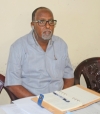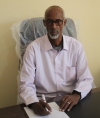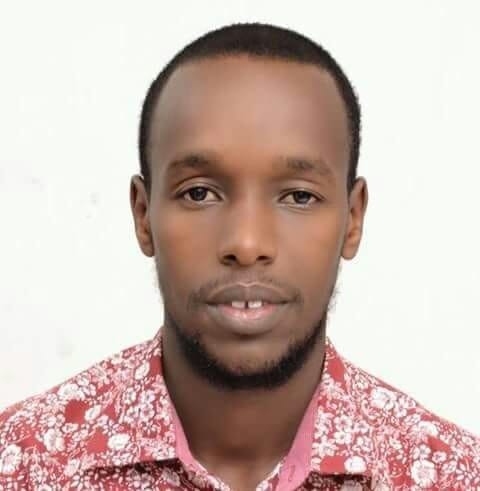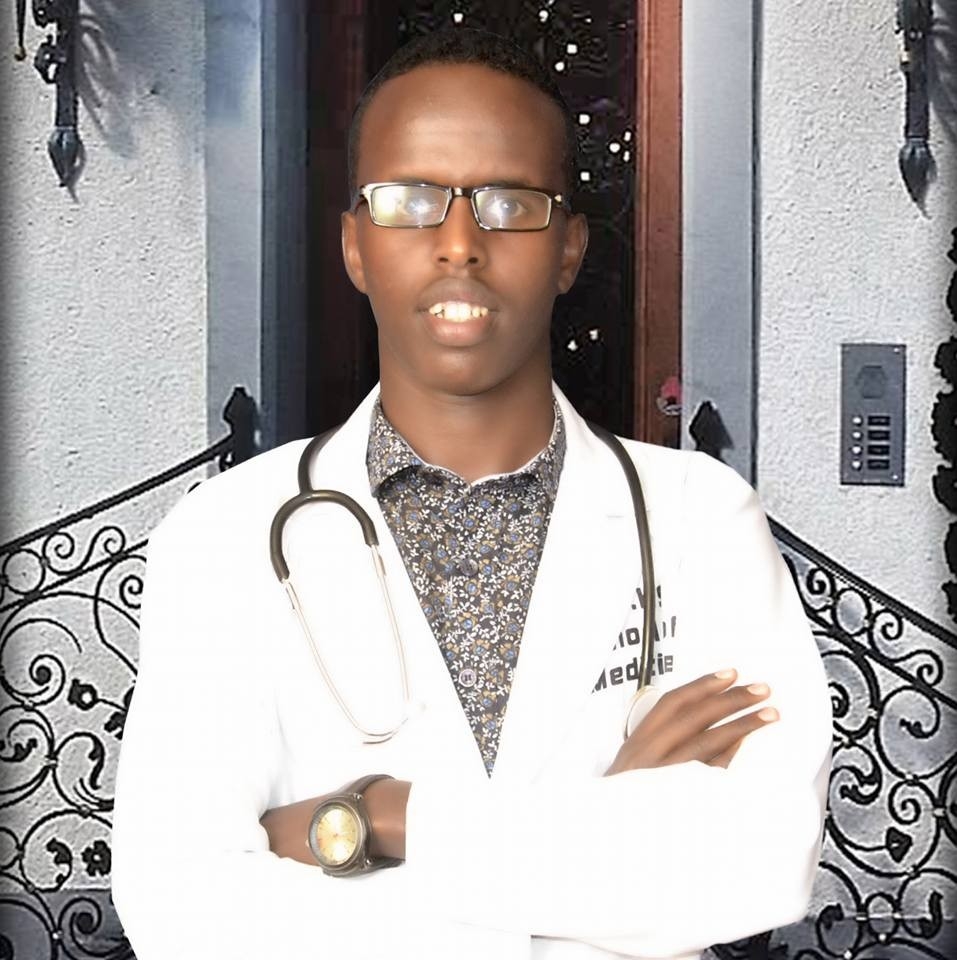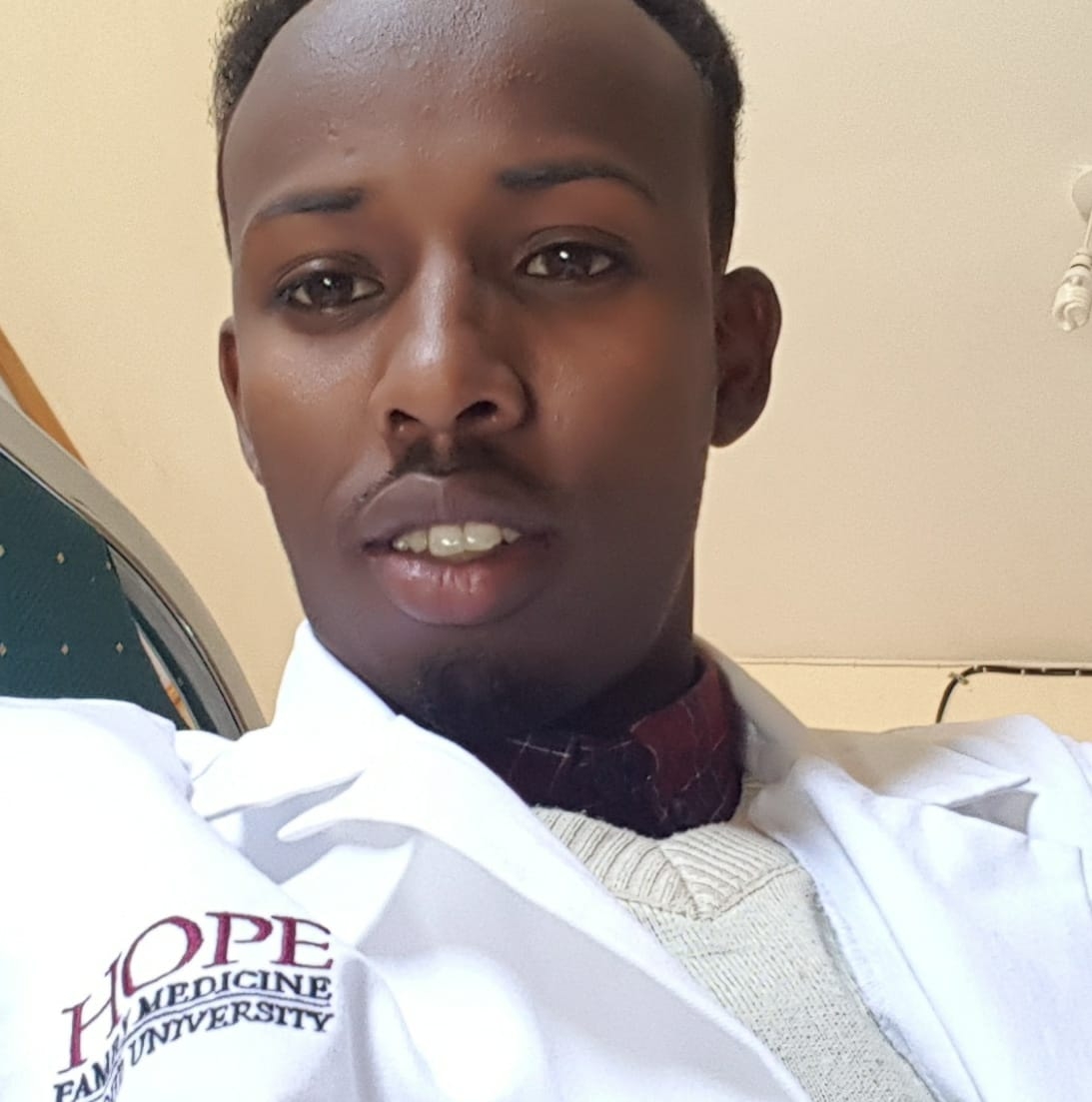It was established in academic year 2012-2013 as part of the Amoud College of Health Sciences and the first of its kind in Somaliland and Somalia. The program is designed for four years of study leading to the degree of bachelor of Public Health.
There is a complex threat of rapidly spreading and emerging infectious diseases( Communicable and non-communicable disease) as well as changing lifestyles, a strong health workforce is essential. Building the human resources for health should not only include healthcare professionals like physicians and nurses but must take into consideration public health practitioners and strengthened primary healthcare systems to increase coverage and address the basic health needs of societies. This is especially true in low and middle-income countries like our country where healthcare access is a critical challenge. To respond to this crisis, policies and actions are needed to address the dynamics of the health, the production and management of the health workforce and to strengthen the performance of existing health systems. Schools of public health need to be developed to improve the range of capacity and leadership in addition to the traditional training of healthcare managers and researchers. To respond Amoud College of Health Sciences have started the School of Public Health to focus on Policy formulation, Strategic planning, Health services financing, Coordination of health services, Service provision, management, Leadership and good Governance.
The educational programme of the school of public health aims to provide the students with the knowledge, skills and attitudes necessary to become oriented public health professionals who take the leadership roles within the public health issues and meet the current and future challenges of public health issues as to improve the quality of life and the population’s health of the country. The curriculum provides the broad systemic understanding, critical thinking skills, and leadership training needed to tackle today’s complex public health challenges. The public health post graduate program was started academic year 2012-2013. It is designed for two years of study leading to master of public health. It is primarily concerned with the promotion of health, prevention of disease and prolonging life. The purpose of the MPH programme is to equip its graduates with knowledge and skills to improve the standards of health of people, through training public health specialists with a hands-on approach in disease prevention, leadership and management of programs at community and institutional levels.
The programme is tailored to various public and community health priority areas thus allowing a wider range of choices for students with different backgrounds
Dr. Abdisalam Jama (Gahayr)
Dean. School of Public Health
Amoud University, College of Health Sciences
Email: This email address is being protected from spambots. You need JavaScript enabled to view it.
Mobile: 0634455225
Introduction
School of Medicine is one of the schools of Amoud University. It is situated in Borama District, Awdal Region. Amoud Medical School was established in 2000-2001. Its academic program is designed for six years medical education leading to the degree of Bachelor of Medicine and Surgery (MBBS). The school is partnering with King’s College Teaching Hospital of London which provides teaching assistance and Kijaabe Hospital of Nairobi which provides support in the form of dispatching lecturers on periodic-basis to AMS. The school also recruits Somali doctors to help the school in community-based medical education. Special attention is exercised to the quality of medical education through out, starting from admission to graduation. The School’s concept and philosophy necessitates the adherence to valid concepts of education using modern trends and effective methods with flexibility. The curriculum is community –oriented medical education (Learning experience for the students and services for the community with the objectives of giving the students the appropriate skills, attitudes and knowledge in identifying and dealing with the community problems) and uses student-centered approach with emphasis on self-learning to develop in the students the ability and willingness to pursue their own learning after graduation. During the educational program the students come into contact with different communities with different situations to recognize the characteristics of the Somali family, relations, culture, attitude towards health, knowledge and practice in state of health and disease and become familiar with the people they will work for after the completion of their medical studies.
The School of Medicine has started postgraduate studies with family medicine residence at the academic year 2013 which is designed for three years studies leading to Master of Medicine. The Family Medicine Specialist is a generalist physician. The family physician provides care that is comprehensive, extending from birth to death, for men, women and children, covering a broad range of illnesses. The family physician coordinates care among other specialists and non-physician providers, integrating care at various levels of the health system. The Family Medicine Specialist provides holistic care of the whole person, rather than simply disease oriented treatment. Family medicine is community oriented, recognizing the context of the individual in a community impacted by public health issues. The Family Medicine Specialist focuses on the preventive and promotive aspects of care, as well as curative. The Family Medicine Specialist provides care that is continuous over a long period of time, rather than episodic. Finally, family medicine is cost-effective, using limited resources wisely.
As a generalist, the Family Medicine Specialist can function well in a variety of settings, academic or non-academic, rural or urban, private or public, among the rich or poor, in district or provincial hospitals or clinics. However, this curriculum is designed specifically to prepare the Family Medicine Specialist to function in the District Hospital. Upon successful completion of the 3 year training program, Amoud University will grant each graduate a Certificate of Specialization in Family Medicine.
Amoud School of medicine is planned to start the coming academic year 2014-2015, residence in general surgery with the mission to develop and train General Surgeons who are competent to practice Surgery independently. It is designed five year residency training program leading to the master degree of general surgery.
The educational programme will provide a broad educational experience in recognition and treatment of surgical disorders. Upon completion of training, the graduate is expected to be a competent specialist in General Surgery capable of independent practice.
During training, the resident will have acquired a thorough knowledge of the theoretical basis of General Surgery, including its foundations in the basic medical sciences and be exposed to research activities. The graduate will be able to access and apply relevant knowledge and skills to clinical practice and provide effective consultation services with respect to patient care, education and medico-legal issues.
The School is headed by a Dean who acts as the chief officer responsible to the university president, the executive council for the plans and programs of the School and for its day-to-day operations. The Dean is assisted in his duties by an Administrative Assistant and associate dean.
Objectives of the School
To produce highly trained doctors and nurses who will play a great role in the delivery of health care. In order to achieve this objective the School will:
Provide these trainees with the knowledge, skill and attitudes to become competent physicians.
Promote health knowledge through research in all areas related to health care including Basic science, clinical science studies, cultural and behavioral aspects of medical methods for delivering health care and medical education.
Aim at promoting exemplary, primary, secondary and tertiary health care and related community services.
Undertake continuing medical education to maintain and improve the competence of the practicing professional and serve as a medical recourse center (MRC) for health professionals and
Organizations involved in health care.
Participate in the Development and improvement of the quality of health services in the country
Strategy
Most subjects are taught with a variety of methods including lectures, projected materials with lecturers notes presented to the students, practical work and seminars.
- Problem based learning
- Self directed learning
- Group dynamics
- Team work
- Early practical training at all levels of health services (individuals, families and communities)
- Staff training and development
- Criteria for admission
Applicant to this School must have:
- Completed Secondary Education
- Passed the general requirement courses of the freshman year with at least a GPA of 3.5
Student Evaluation
- Student Assessment
- Continuous Evaluation
- Credit Hours
- Utilization of numerous tools of Evaluation.
Curriculum Evaluation
- End of courses student feedback
- Courses coordinators reports
- Yearly Review
Graduation Requirements
The credit hour per semester forms the basis of awarding a Bachelor degree at the faculty. In order to be eligible for the degree, the student must successfully earn a minimum of 280 hours. The duration for completing theses hours is six years, which are divided into the following manner.
- Basic Science Study: two years
- Pre-clinical study: Two years
- Clinical study: Two years
This is followed by an internship of one year in the affiliated hospitals.
CALENDAR YEAR
Calendar Event Beginning Ending
1st Semester 15th September 30th January
2nd Semester 15th September 30th January
Mid-Vocation 1st February 28th February
Summer Vocation 16th July 14th September
Tel 1: +252-63-4455191
Tel 2: +252-63-4456233
Dr. Said A. Walhad, Principal of ACHS
E-mail: This email address is being protected from spambots. You need JavaScript enabled to view it.
Dr. Ismail M. Aaye, Dean School of Medicine
E-mail: This email address is being protected from spambots. You need JavaScript enabled to view it.
School of Medicine
INTRODUCTION
School of Dentistry is one of the schools of Amoud University. It is situated in Borama District, Awdal Region. It was established on Academic year 2009-2010.
The word of the dean (2013-2014)
I am delighted to welcome you to the University of Amoud School of dentistry. You are joining a community that is committed and dedicated to our mission of oral health education, truth, innovation, service, and faith.
I encourage you to become an active member of this community of scholars and learner. Exercise every opportunity to grow intellectually, spiritually, emotionally and socially. The school Life Staff is available to assist you in achieving your goals by creating a studying climate conducive to your personal development.
As your Dean, I am available to assist you with any questions or concerns you have in accessing the dentistry school services and understanding the Amoud University and college of health sciences policies and processes.
Objectives of the School
To produce highly trained doctors and dental assistants who will play a great role in the delivery of dental and oral health care. In order to achieve this objective the School will:
Provide these trainees with the knowledge, skill and attitudes to become competent densities.
Promote Dental knowledge through research in all areas related to dental and oral health care including Basic science, clinical science studies, cultural and behavioral aspects of Dental methods for delivering dental health care and dental education.
Aim at promoting exemplary, primary, secondary and tertiary dental and oral health care and related community services.
Undertake continuing dental education to maintain and improve the competence of the practicing professional and serve as a dental recourse center (DRC) for dental professionals and Organizations involved in dental health care.
Participate in the Development and improvement of the quality of dental services in the country
Goals
The goal school of dentistry is to produce competent Doctors who can deal with the prevailing health problems of the country, competent to practice preventive, promotive, curative and rehabilitative oral health in respect to the commonly encountered dental health problems and Possess the attitude for continued self learning and to seek further expertise or to pursue research in any chosen area of dentistry.
Vision
The vision of school of dentistry is producing and training desperately needed qualified dental professionals particularly for Somaliland.
Mission
The mission of School of dentistry is to contribute to knowledge and to produce dental graduates fully armed with practical and intellectual skills appropriate to the needs of our community. The school will work and make sure that the students acquire such skills using modalities that encourage active learning in the context in which they will later function as dental professionals.
Strategy
Most subjects are taught with a variety of methods including lectures, projected materials with lecturers notes presented to the students, practical work and seminars.
Lap and clinical practice
Self directed learning
Group dynamics
Team work
Staff training and development
Criteria for admission
Applicant to this School must have:
Completed secondary education
Passed the general requirement courses of the freshman year with at least a GPA of 3:00
Evaluation
Student assessment characteristics
1. theory, practical and oral evaluation
2. credit hour evaluation
4. assignment and presentations
Curriculum evaluation
1. end of course student feedback
2. courses coordinators report
3. yearly review
Graduation Requirements
he credit hour per semester forms the basis of awarding a Bachelor degree at the faculty. In order to be eligible for the degree, the student must successfully earn a minimum of 280 hours. The duration for completing theses hours is four years, which are divided into the following manner.
¨ Basic science study: two years
¨ Pre-clinical study: one years
¨ Clinical study: one years
OSCEs is final exam of the whole years which observe foreign examiners from king collage London. This is followed by an internship of one year in the Borama dental hospital, Hargaysa group hospital, manhel cerigabo hospital.
Achievements from 2009-2014
Graduation of the first group of dentist in whole Somalia speaking lands.
We Provide free community services include (160 patients with different fillings and 140 patients with complete and partial dentures and also so many different teeth extractions, all are free services)
New clinical lab that students take their clinical and laboratory activities.
There are so many achievements that we can’t summers here.
Contact info:
Tel: +252-2-4502739
+252-2-4546844
E-mail: This email address is being protected from spambots. You need JavaScript enabled to view it.
This email address is being protected from spambots. You need JavaScript enabled to view it.
This email address is being protected from spambots. You need JavaScript enabled to view it.
Dean, School of Medical Laboratory Sciences
Written by Amoud Web TeamIt was established in the academic year of 2010-2011 with the aim to produce medical technologist with knowledge, skills and attitudes who are able to fill the gap in the health working force of the laboratories. Its academic program is designed for four years of study leading Bachelor of Medical Laboratory Technology (BMLT).
It’s curriculum is community oriented education and combines theoretical knowledge of the basic natural and medical sciences with the skillful use of sophisticated equipment and techniques to provide vital information that may be required for diagnosis and treatment of diseases, quality control, quality assurance and research to formulate the policies and measures for the prevention of diseases. The educational program is designed to produce professionals who can use the knowledge they have acquired to develop their countries and improve the quality of lives of their people.
There are Inadequacies in laboratory infrastructure and a low national priority and neglected, not only because of more pressing health problems and emergencies but also because of lack of manpower, skills and equipment which finally leads to underutilization of laboratory services available. Health care programs dictated by donor agencies often do not consider broader regional needs or make provisions for overall sustainability.
The migration of skilled laboratory personnel due to the civil unrest deteriorates the situation. The majority of hospitals cannot consistently provide even these basic services in a quality-controlled fashion. unreliable and inaccurate laboratory diagnostic testing leads to unnecessary expenditures in a country already plagued by resource shortages, promotes the perception that laboratory testing is unhelpful, and compromises patient care. Amoud School of lab technology was established to initiate new source of producing skilled laboratory personnel to ensure accurate laboratory services that contribute well to the patient care and secure physicians' confidence in applying laboratory results to their daily practice.
The curriculum is community oriented education with emphasis on self-learning to develop in the students the ability and willingness to pursue their own learning after graduation to become competent lab technicians and community oriented.
The School is also commited to advance knowledge about health through research in all areas related to health care including basic science, clinical science education and studies related to methods for the delivery of health care
 English
English



